Disclosure: Some of the links on this website may be affiliate links. As an Amazon Associate, we earn from qualifying purchases. The price you pay will be the same, but by using our affiliate links you are helping support our website. Learn more on our disclaimer page.
Introduction
In moments of crisis, the choice between responding vs. reacting can be the difference between escalating a problem or resolving it.
In Buddhism, there’s a story called ‘The Poisonous Arrow‘ in the Majjhima Nikaya. The story goes something like this.
Once upon a time, a man was struck by a poisoned arrow. The man immediately panicked, and his anxiety got the better of him. Instead of allowing his friends and family to have the poisoned arrow removed by a surgeon, he did something rather strange. He started asking endless questions like who shot the arrow, what kind of poison was on it, and where it was made!
As he continued questioning, the poison spread through his body. His family begged him to let them help, but he refused until he had all the answers. Sadly, the longer he delayed, the worse his condition became.
The Impact of Responding vs. Reacting
In addition to teaching us the valuable lesson that life is short and too precious to be lost in unending questions, Buddha also, shows us the difference between responding vs. reacting.
The man’s immediate reaction was to seek information about the arrow. This is called reacting to a situation, where we focus on the problem and get stuck in trivial details that aren’t immediately important.
On the other hand, responding means understanding the situation and taking the right action. In this case, pulling out the arrow and treating the wound would have been the best choice.
When we translate this fable into our lives, we often face situations that are a bit like being struck by the poisoned arrow. More often than not, fear and anxiety take over, causing us to get trapped in analysing things that upset us, and led to this situation.
But if we focus on responding—by handling what we can control and solving the problem, we move forward more effectively.
So, the next time you feel stuck or upset, take a moment to breathe and think about the best action. How you respond can indeed change everything!
What the Poisonous Arrow Teaches About Responding vs. Reacting
Do not dwell in the past, do not dream of the future, concentrate the mind on the present moment.
Buddha
A few weeks ago, my wife and I were driving back home after a long day. We felt exhausted and were eager to get back home. While I was driving, making my way through traffic, another driver suddenly cut me off, nearly causing an accident.
This was the poisonous arrow that had hit me out of nowhere!
I felt scared, angry and threatened by what had just happened. My immediate reaction was to honk aggressively, shout at the driver, or tailgate them to show my frustration. In that moment, all these actions temporarily felt justified and the right thing to do.
But then wisdom came to my rescue. I realised that choosing to react vs. respond, would only escalate the situation, and it may even lead to a dangerous confrontation. Plus, it would have left me feeling more stressed and upset for what remained of the day.
So instead, I decided to take a deep breath and reminded myself that my primary goal was to get us home safely. The accident was close, and the other driver was at fault. However, by God’s grace, we escaped something far worse.
So, I decided to let go of the anger and continued driving without reacting. By choosing not to engage, I avoided unnecessary stress and maintained my peace of mind. In doing so, I refused to let that poisonous arrow dictate my actions.
To avoid falling into the same trap, consider following the 4 simple lessons listed below.
Lesson 1: Detach from the Need for Immediate Answers
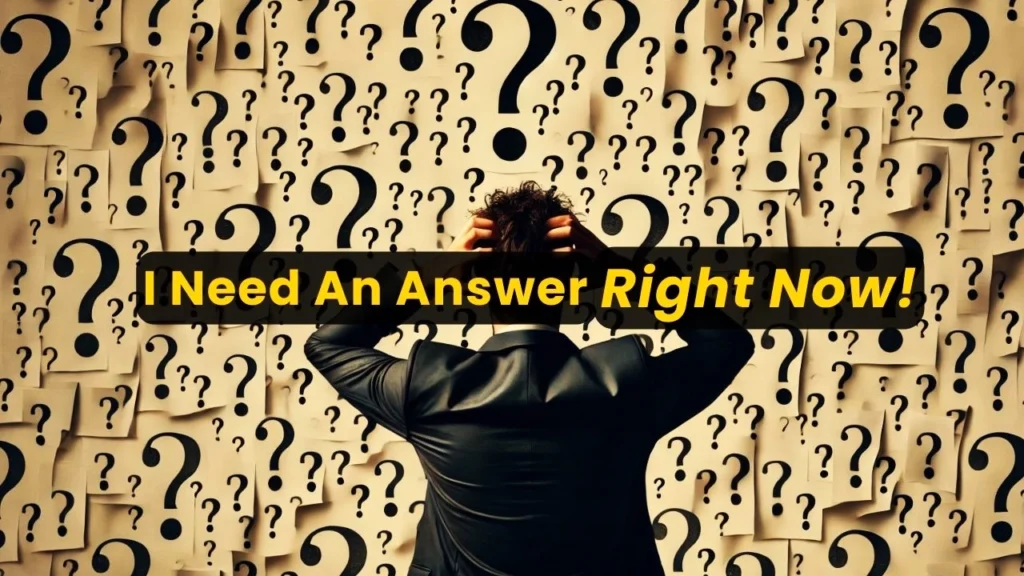
“The more you know, the more you realize you don’t know.”
Aristotle
Have you ever felt pressured to respond instantly? I am referring to that invisible pressure at the back of your mind, constantly urging you to be the first to answer and solve everything. Be it in a meeting, or a conversation, or even in our own thoughts, it is often present all the time. But in the rush to react vs. respond, we give away our chance to think carefully.
And sadly, I had to learn this the hard way!
During a team meeting I was asked a difficult question. I did not want my team to think that I had come unprepared. So, this pressure within my mind to answer on the spot became intense and I ended up blurting out the first thing that came into my head!
I did not realize that my rushed reaction would lead to more confusion and a sense of tension within the team.
But it is easy to be wise after the event, and later, regret filled me! I realized that if I had just taken that moment to pause and reflect, before answering, I could have given a much better response. How silly of me that I hadn’t!
Respond vs. React: Overcoming the Pressure to Answer Immediately
On the bright side though, this somewhat bitter experience taught me a valuable lesson about the difference between responding vs. reacting.
Sometimes, in our eagerness to resolving a problem or handling a situation, we end up focusing on the wrong things. However, by taking a step back instead of rushing to react vs. respond, we can see through the clutter and identify what really needs our attention. This helps us to respond better to the situation.
And you would be surprised that this small adjustment can make a big difference in how we handle situations, both at work and in our personal lives.
Lesson 2: Learn to Accept Uncertainty
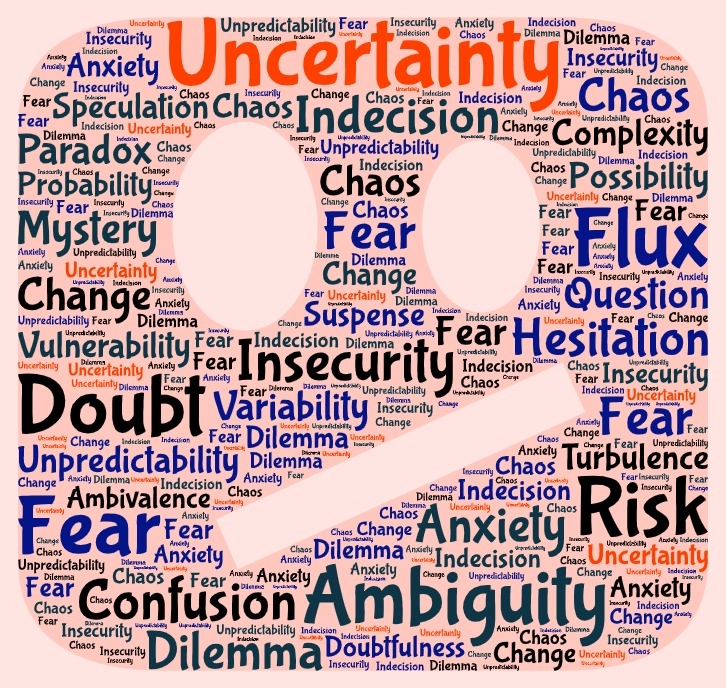
“The way we respond to adversity can be a major factor in how happy and successful we can be.”
John C. Maxwell
Ever since I started my career, I have often heard the phrase “change is constant.” And with change comes a lot of uncertainty.
Little did I realize back then how valuable a life lesson this was!
The parable of the poisonous arrow teaches us that we can’t know or control everything in life. When we try to grasp at every detail or demand certainty before moving forward, we often end up getting stuck, just like the man in the parable who refused treatment until all his questions were answered.
Accepting uncertainty is a powerful approach when it comes to responding vs. reacting to life’s problems.
So now, instead of getting caught up in endless “What if?” question loops, I remind myself that not every question needs to have an immediate answer.
Sometimes we just need to surrender and let go of that ‘control freak’ within us and let our self-confidence and inner wisdom be our guide.
By accepting that uncertainty is a part of life, I managed to shift my mindset. I chose to respond with calm and patience rather than reacting with fear. This approach not only reduced my stress but also helped me make better choices and clearer decisions.
So, the next time you face uncertainty, remember to respond with acceptance, and you will find that, as if by magic, you are better equipped to handle whatever comes your way.
Lesson 3: Respond vs. React—Shaping Your Well-Being
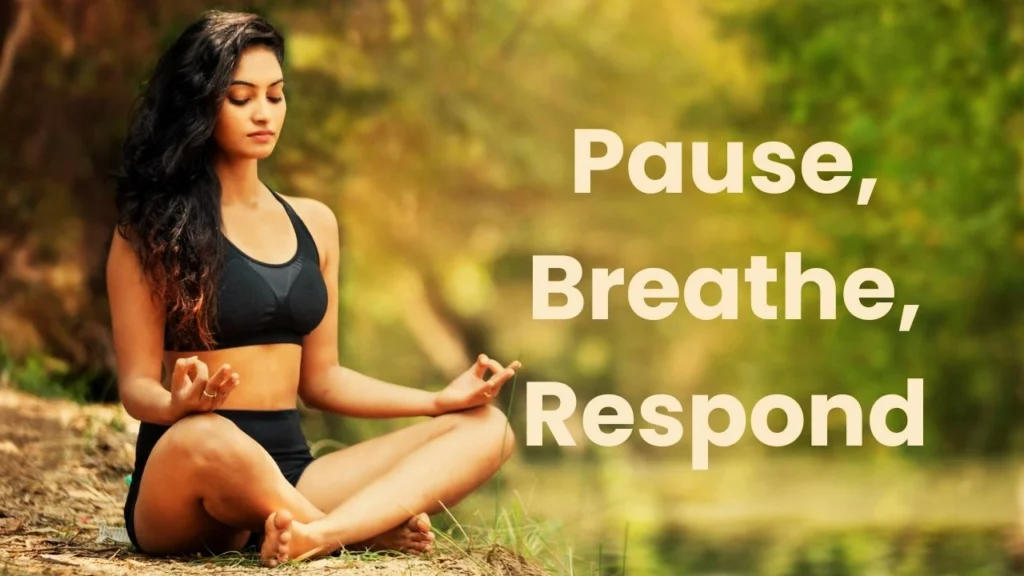
To the mind that is still, the whole universe surrenders.
Lao Tzu
When faced with challenging situations or circumstances, we tend to worry about unnecessary things. It is not uncommon to imagine that the worst is going to happen to us.
However, this shifts our focus, making us overlook other critical things that need to be managed in that moment. What is even worse is that at times, it can make us ignore our own safety and well-being.
At one point, I too caught myself in such a loop. It so happened that I would say a ‘yes’ to anything and everything that came my way. Back then I was managing a very large team spread across geographically and would take on a lot more responsibilities than I could handle.
As expected, this caused a lot of stress, which I had brought on upon myself. I would react impulsively to every problem that came my way—emails, deadlines, and even to small, rather insignificant everyday challenges.
And it wasn’t until I consciously took a step back and decided that I had to take steps to prioritize my well-being. It never came easy, but from that moment on, things started to change.
Instead of reacting impulsively, I slowly began to respond with intention. I set boundaries, learned to say no, and made time for activities that recharged me, like meditation, exercise and spending time with my family.
In fact, by focusing on my well-being, I found that I could handle challenges more calmly and effectively.
So, when life throws a challenge your way, remember to take care of yourself first. Self-preservation is a natural instinct that should be preserved and nurtured.
This approach also highlights the difference between responding vs. reacting. It helps us stay calm and strong even during tough times.
Lesson 4 – Stop Overthinking — Learn to Respond, Not React
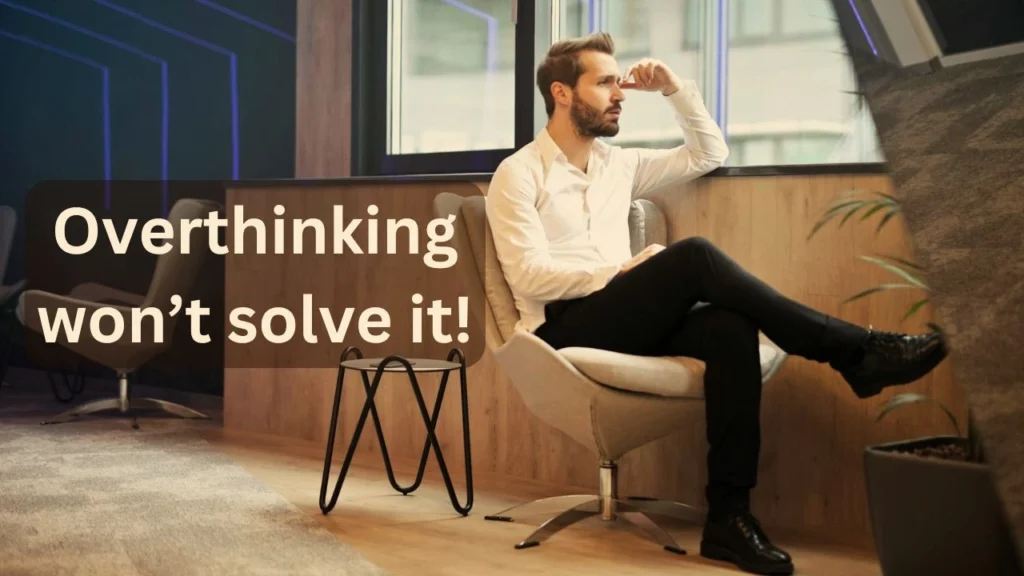
Another common, natural response when we face adversity, is the minds’ tendency to overthink and overanalyse. But the drawback here is that it delays action and can shift our focus by trapping our energy in thoughts.
I too have been a victim of this trap quite a few times. An instance that comes to my mind is time when I had to give an important presentation at work. I remember that before I even started preparing my slides and focusing on the content, I spent hours worrying about the things that could go wrong and the questions that may come up.
Senior department leads were also going to be a part of the audience, so, what would happen if I made a mistake, or something was to go wrong? How would my colleagues react?
But the more I thought about it, the more I got caught in that vicious loop of nervousness and anxiety, which only made it harder for me to concentrate on the first action which I had to take-to get my content ready!
How Responding Can Make a Difference
“Overthinking is the art of creating problems that weren’t even there.”
At some point, I realized I was overthinking. So, I decided to take action. Instead of letting my thoughts control and paralyze me, I began to focus on the only thing which I could control—my preparation.
I shifted my mindset to responding instead of reacting, and by focusing on what I could do right now (responding), rather than getting lost in all the “what ifs” (reacting), I was able to calm my nerves and deliver a successful presentation.
So, the next time you find yourself caught in such a cycle, remember the lesson from the parable. Focus on what you can do now.
Respond with calm and clarity instead of reacting with panic or endless questioning. By doing so, you will handle challenges more effectively and with greater peace of mind.
I am sure you would agree that these lessons are a food for thought, aren’t they?
If you are curious to learn more, I found some great articles and books that can help us dive deeper into these ideas. Let me share them with you.
Suggested Reading
Here are some research articles and book recommendations for this topic.
Research Articles
1. You Know It’s Good For You, So Why Aren’t You Doing It? (forbes.com)
2. Cula-Malunkyovada Sutta: The Shorter Instructions to Malunkya (accesstoinsight.org)
3. Response vs. Reaction – International Student House Washington, DC (ishdc.org)
4. React vs Respond | Psychology Today
Recommended Books
1. "The Pause Principle: Step Back to Lead Forward" by Kevin Cashman
2. "The Choice: Embrace the Possible" by Dr. Edith Eva Eger
3. "Resilience: Hard-Won Wisdom for Living a Better Life" by Eric Greitens
4. "Don't Sweat the Small Stuff… and It's All Small Stuff" by Richard Carlson
5. "The Middle Length Discourses of the Buddha: A Translation of the Majjhima Nikāya"
Conclusion
In wrapping up, we have uncovered four life lessons from the parable of the Poisoned Arrow.
We learned the importance of focusing on what really matters, accepting uncertainty, taking a moment before reacting, and respond thoughtfully to life’s challenges. These lessons remind us that life is too short to spend on hasty decisions.
As you move forward, try to apply these teachings in your everyday life. When faced with difficulties, remember the wisdom of the poisoned arrow and choose to respond with purpose and clarity. This approach will not only help you overcome obstacles but also keep you on track with what truly matters.
At the end of the day, it is not about how fast we react, but how wisely we respond.
So, don’t forget to respond with your thoughts in the comments box below.
And if you find this article helpful, please do share this blog with your friends, family, and colleagues who might find it useful too. Your support will mean a lot to us!
In the end, let me leave you with this powerful quote to dwell on:
“How people treat you is their karma; how you respond is yours.”
Wayne Dyer
- Micro-Habits: How Small Changes Lead to Big Results - October 19, 2024
- Self-Doubt: How Impostor Syndrome Silently Steals Confidence - September 19, 2024
- Responding vs. Reacting: 4 Zen Lessons from the Poisonous Arrow - August 19, 2024
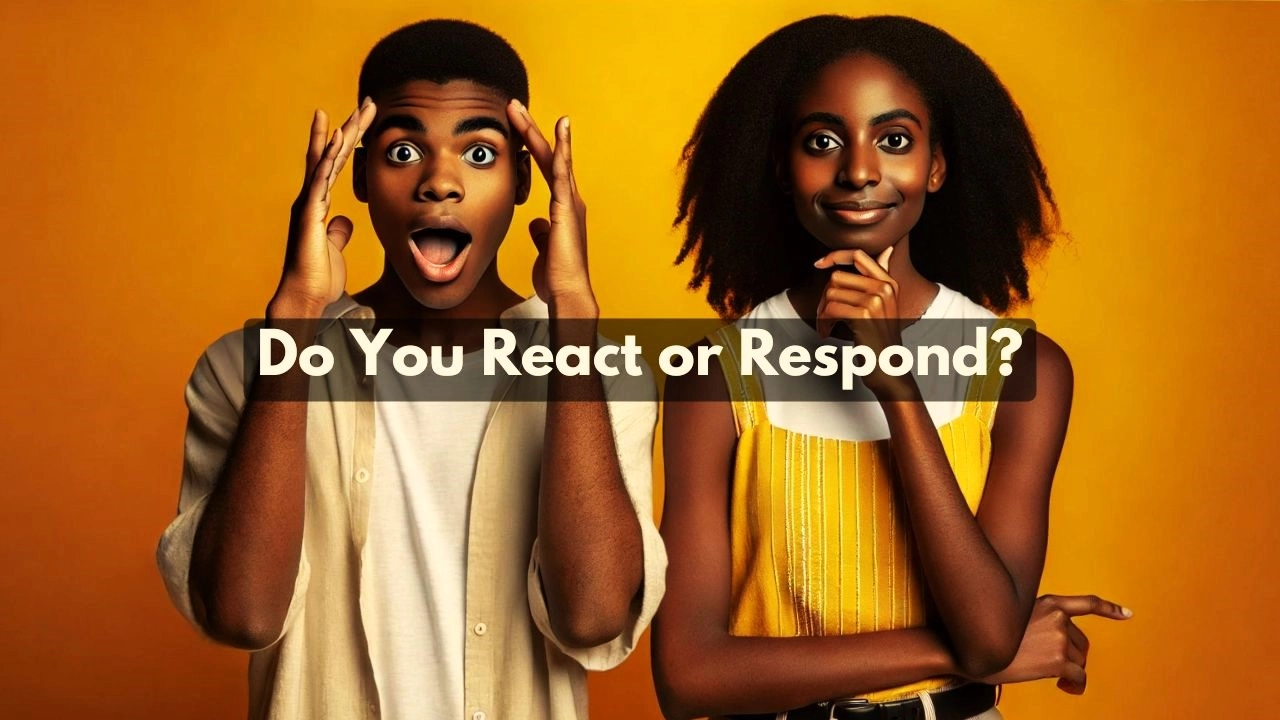



Great article! I really appreciate the clear and detailed insights you’ve provided on this topic. It’s always refreshing to read content that breaks things down so well, making it easy for readers to grasp even complex ideas. I also found the practical tips you’ve shared to be very helpful. Looking forward to more informative posts like this! Keep up the good work!
I read few of your posts – one is reacting v/s responding, one is gratitude and one is impostor syndorme.. one thing which is very unique in the way you write and narrate is you share your personal experience and as everybody says, nothing teaches you as much as your experience does.. so thank you so much for sharing your experiences, inspiring people like us, leading us to self-introspection and ultimately leads us to the path of happiness and peace.. i really loved your posts, keep writing and keep inspiring pls! Thank you ..
What you’ve written here speaks not only to the mind but also to the soul, offering a sense of peace and understanding.